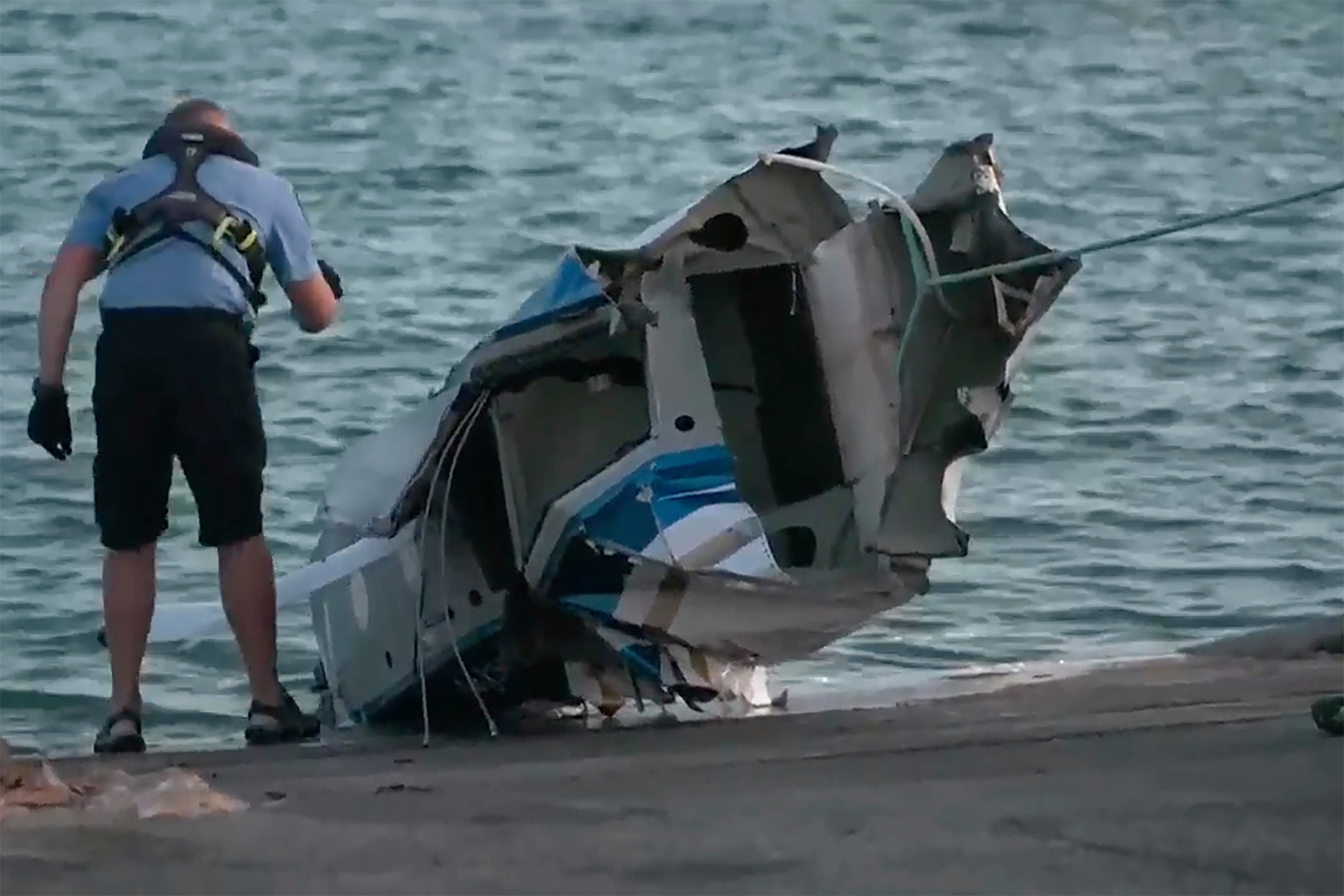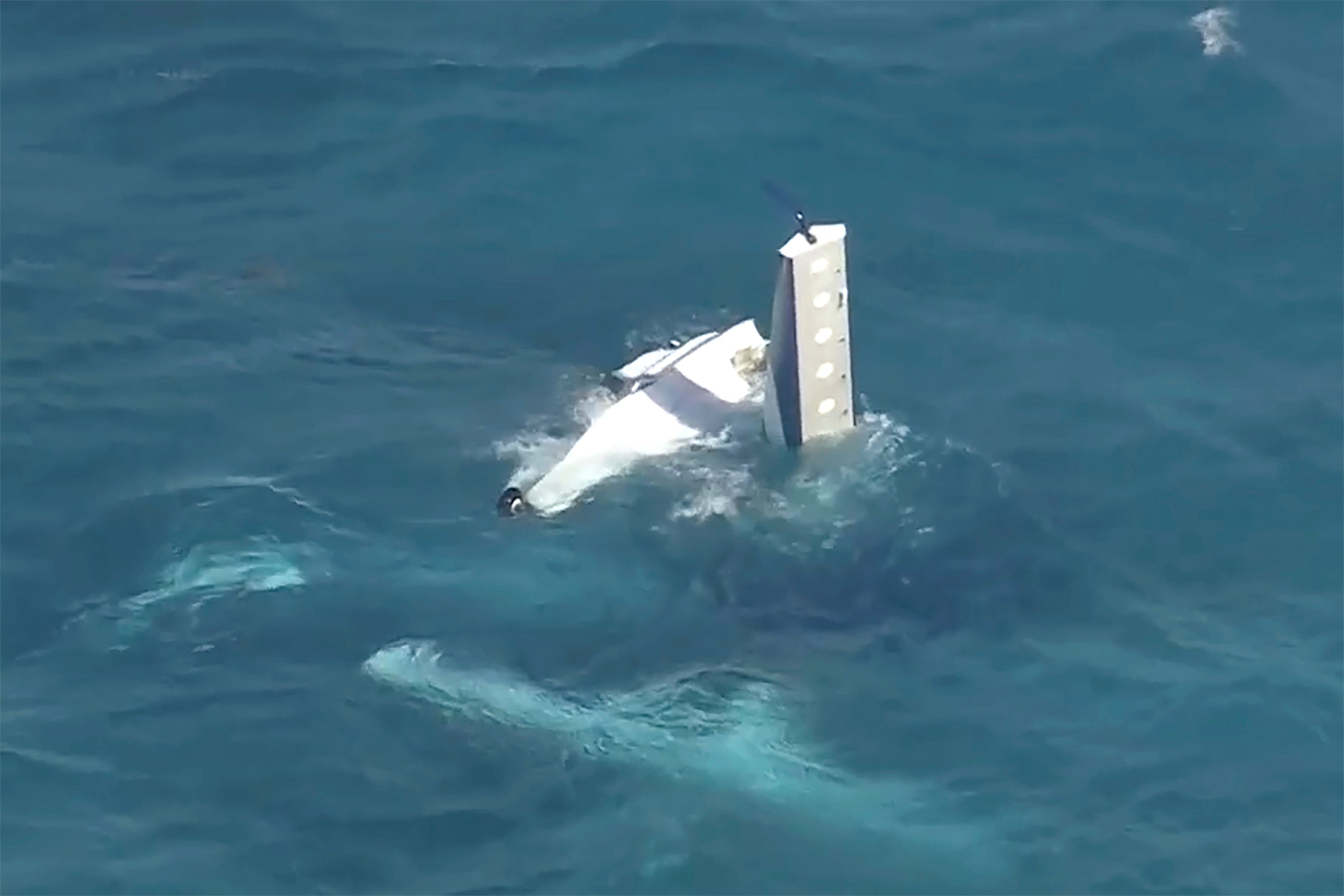Swiss and Danish nationals among three dead in seaplane crash off Australian tourist island
Police say cause of crash under investigation

At least three people were killed after a small seaplane crashed during take-off from an Australian tourist island.
The Cessna 208 Caravan plane crashed on Tuesday while leaving Rottnest Island, which is famous for its friendly marsupials called quokkas.
The victims were identified as the 34-year-old pilot, a 65-year-old woman from Switzerland and a 60-year-old man from Denmark.
Three passengers were taken to hospital with wounds while one of the seven people onboard escaped unharmed.
The plane, owned by Swan River Seaplanes, was returning to its base in Perth, 30km east of the island, Western Australia premier Roger Cook said.
Mr Cook confirmed the deaths on Wednesday as search teams fished wreckage of the plane from the sea. The survivors included an Australian couple, a 63-year-old man and 65-year-old woman.

Police divers recovered the bodies on Tuesday night from a depth of 8m, authorities said.
Mr Cook said the cause of the crash was not immediately known but there were unconfirmed reports that the plane had struck a rock at the entrance of a bay on the west side of the island.
"Every Western Australian knows that Rottnest is our premier tourism destination," Mr Cook said. "For something so tragic to happen in front of so many people, at a place that provides so much joy, especially at this time of the year, is deeply upsetting."
Rottnest Island is renowned for its sandy beaches and quokkas, which are rare on the Australian mainland. The island's tourist accommodation is fully booked during the Southern Hemisphere summer months.

Police said they received several calls from the public at around 4pm local time on Tuesday alerting them to the plane crash, which prompted a multi-agency response.
"Importantly, members of the public were already present, immediately jumped to save lives," police commissioner Col Blanch said.
Greg Quin, a tourist vacationing on Rottnest, said he saw the plane crash. "We were watching the seaplane take off and just as it was beginning to get off the water, it just tipped over and it crashed," he told Australian Broadcasting Corporation radio in Perth.
"A lot of people in the water on their boats rushed to the scene and I think got there really, really quickly.”
Australian Transport Safety Bureau, the aviation crash investigator, said specialist investigators were being sent to the scene.
"As reported to the ATSB, during take-off the floatplane collided with the water, before coming to rest partially submerged," the bureau's chief commissioner, Angus Mitchell, said in a statement.
Australian prime minister Anthony Albanese described the crash as "terrible news". "The pictures would have been seen by all Australians as they woke up this morning," he said. "My heart goes out to all those involved.
Join our commenting forum
Join thought-provoking conversations, follow other Independent readers and see their replies
Comments